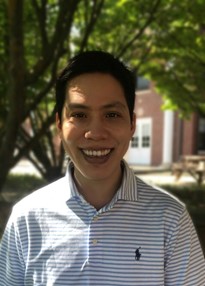Find a CBT Therapist
Search through our directory of local clinicians.
Richard T. Liu

Mentor Spotlight
ABCT’s Spotlight on a Mentor program aims to highlight the diversity of excellent research mentors within the organization’s membership ranks. Our goal is to spotlight both promising and accomplished mentors across all levels of academic rank, area of specialization, and type of institution. Dr. Richard T. Liu is an Associate Professor at Harvard Medical School, and the Director of Suicide Research in the Division of Child and Adolescent Psychiatry and Director of Big Data Studies in the Depression Clinical and Research Program at Massachusetts General Hospital. He provides research mentorship to high school students, research assistants, medical students, residents, post-doctoral fellows, junior faculty, and psychology trainees through the clinical psychology internship program at Massachusetts General Hospital and Harvard Medical School. He received his PhD from Temple University in 2011 after completing his internship at the University of Illinois at Chicago Medical Center. His research program focuses on characterizing dynamic processes of risk underlying onset and recurrence of self-injurious thoughts and behaviors (SITBs) and depression in youth and young adults. His programmatic interests lie in advancing our understanding of SITBs and depression from who is at risk to how and when they are most at risk, thereby directly informing risk assessment strategies and yielding potential targets for clinical intervention, as well as characterizing risk for SITBs in a high priority, at-risk population, sexual and gender minority youth. He is currently the Principal Investigator of three NIMH-funded studies involving computational modeling of ecological momentary assessment data and ambulatory measures of psychosocial stress, sleep, and physiological arousal, as well as neurocognitive markers of short-term risk for suicidal behavior in adolescents. On mentorship: I try to adapt my approach to each trainee and what they bring in terms of their background, experiences, interests, and personality, but in general I try to foster an open environment where trainees can feel comfortable to discover their own research and career interests, to pursue them, and to learn. This means an environment where they can focus on developing their interests, without feeling like they need to be a carbon copy of my own. It also means creating a space where they can feel comfortable asking for support whenever they need it. I also try to make clear that when it comes to professional development, my role is to offer advice, not prescriptions. This means I have no expectation that they follow every recommendation that I offer and they should instead feel comfortable following differing options whenever they believe strongly in them. This is important because none of us is correct 100% of the time and part of professional development towards independence involves being able critically to process the information and opinions one is given before arriving at one’s own. Lauren Alloy and Mitch Prinstein come to mind as positive influences on my development and mentorship style. Lauren was my graduate school advisor and by the time I graduated, I felt confident in my ability to launch an independent research career. But sometimes one’s confidence has to begin from without. Such was my experience. Lauren’s confidence in me while I was still developing my own facilitated my path toward independence. Prior to graduate school, I was a post-baccalaureate research assistant with Mitch Prinstein. I remember one morning walking to lab but found myself in the hospital instead. It turned out I had kidney stones! When I was released from the hospital that night, Mitch was one of the people who ensured that I got home without issue. Quite often we think of mentorship is in terms of academics, the product being what we can see on CVs, but thinking in broader terms, about the person behind the CV, is also very important. I have drawn on these experiences in my own approach to mentoring, and I am grateful for the continued encouragement and support Lauren and Mitch have given me throughout my career. With many things, we are only able to see the final product; we are unable to peer behind the scenes to learn from the decision-making leading to this end-point. But we learn so much more from the thinking and motivations behind an action than from the action itself. With this in mind, I try to take the time to explain the strategy and thinking underlying my decisions and advice, as well as why alternative paths were not chosen or recommended. Relate to this point, I also try to encourage a very future-oriented mindset, to think several steps into the future and to consider how that may affect which of an array of options one chooses to take in the present. Advice to future mentors: If one is fortunate to have one or several mentors one looks up to, there is a natural inclination closely to model those one most admires. But there is no one “right” way to be a mentor. Instead, I would suggest finding an approach that best capitalizes on one’s own unique set of strengths and integrating elements from one’s mentors that are compatible with this approach.
